All Stories
-
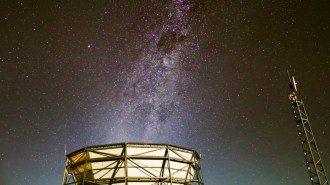 Space
Space50 years ago, scientists had hints of a planet beyond Pluto
In 1972, calculations from Halley’s comet offered evidence of another planet. Today’s astronomers are still searching for a Planet Nine.
-
 Agriculture
AgricultureOat and soy milks are planet friendly, but not as nutritious as cow milk
Plant-based milks are better for the environment, but nutrition-wise they fall behind cow milk.
By Nikk Ogasa -
 Psychology
PsychologyLatin America defies cultural theories based on East-West comparisons
Theories for how people think in individualist versus collectivist nations stem from East-West comparisons. Latin America challenges those theories.
By Sujata Gupta -
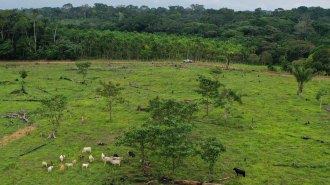 Climate
ClimateReplacing some meat with microbial protein could help fight climate change
Just a 20 percent substitution could cut deforestation rates and land-use CO2 emissions by more than half by 2050, a new study suggests.
-
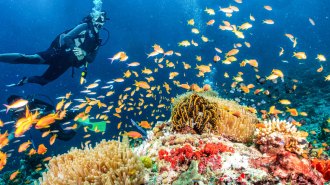 Oceans
OceansHow some sunscreens damage coral reefs
In lab experiments, sea anemones and coral turned oxybenzone into a toxin activated by light. But helpful algae may provide a layer of protection.
-
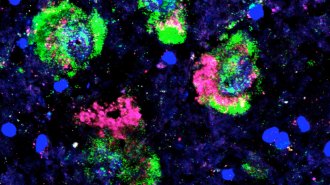 Neuroscience
NeuroscienceA very specific kind of brain cell dies off in people with Parkinson’s
Of out 10 kinds of dopamine-making nerve cells, only one type is extra vulnerable in Parkinson’s disease.
-
 Climate
ClimateHow much does eating meat affect nations’ greenhouse gas emissions?
How much meat eating affects worldwide greenhouse gas emissions comes clear in new country-by-country analyses.
-
 Archaeology
ArchaeologyAncient ‘smellscapes’ are wafting out of artifacts and old texts
In studying and reviving long-ago scents, archaeologists aim to understand how people experienced, and interpreted, their worlds through smell.
By Bruce Bower -
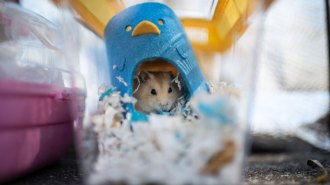 Animals
AnimalsSome hamsters are extremely susceptible to COVID-19
Golden Syrian hamsters used in research and popular as pets can become infected with SARS-CoV-2 with very low doses of the virus, a new study suggests.
-
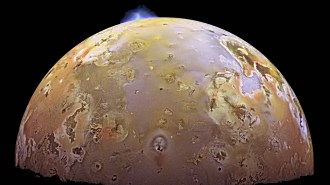 Planetary Science
Planetary ScienceLava and frost may form the mysterious lumps on Jupiter’s moon Io
Jets of gas released when hot meets cold on the volcanic moon Io could generate sprawling fields of dunes, a study finds.
By Nikk Ogasa -
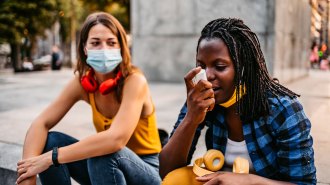 Health & Medicine
Health & MedicineThe body’s response to allergic asthma also helps protect against COVID-19
A protein called IL-13 mounts defenses that include virus-trapping mucus and armor that shields airway cells from infection.
-
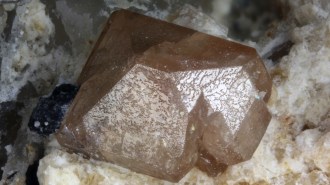 Earth
EarthAncient zircons may record the dawn of plate tectonics
A change in gemstone composition starting about 3.8 billion years ago may offer the earliest record of one tectonic plate sliding over another.
By Nikk Ogasa